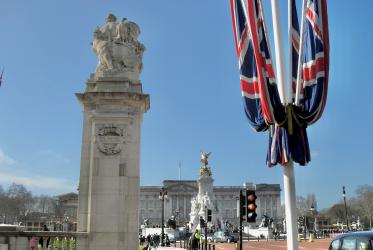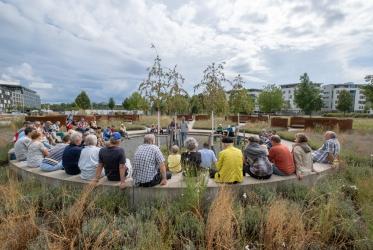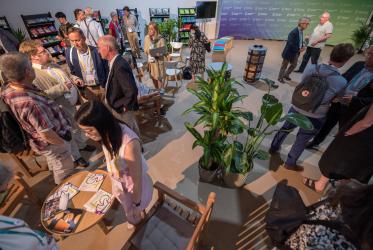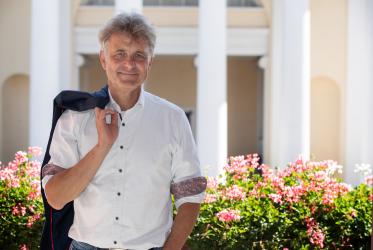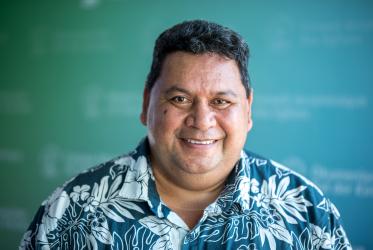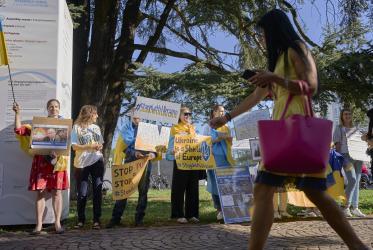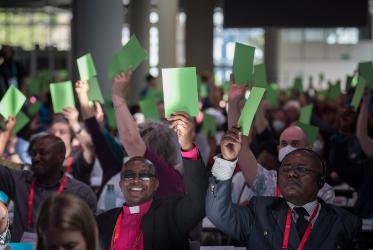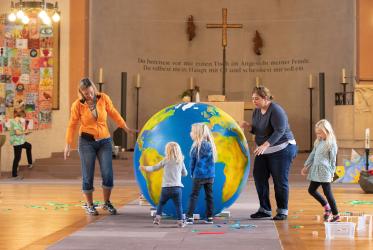Displaying 81 - 100 of 921
26 September 2022
Hospitality and encounter: The rich welcome of German churches
15 September 2022
Workshop explores how interreligious dialogue brings trust and respect
15 September 2022
At assembly and beyond, WCC publications inspire and move
14 September 2022
Reflections from GETI underscore friendship coupled with knowledge
13 September 2022
When guests became citizens of Karlsruhe
12 September 2022
Ukraine: Responding to humanitarian need
08 September 2022
WCC releases minute on consequences of the 2020 Nagorno-Karabakh war
08 September 2022
WCC 11th Assembly shares message: “A Call to Act Together”
08 September 2022

